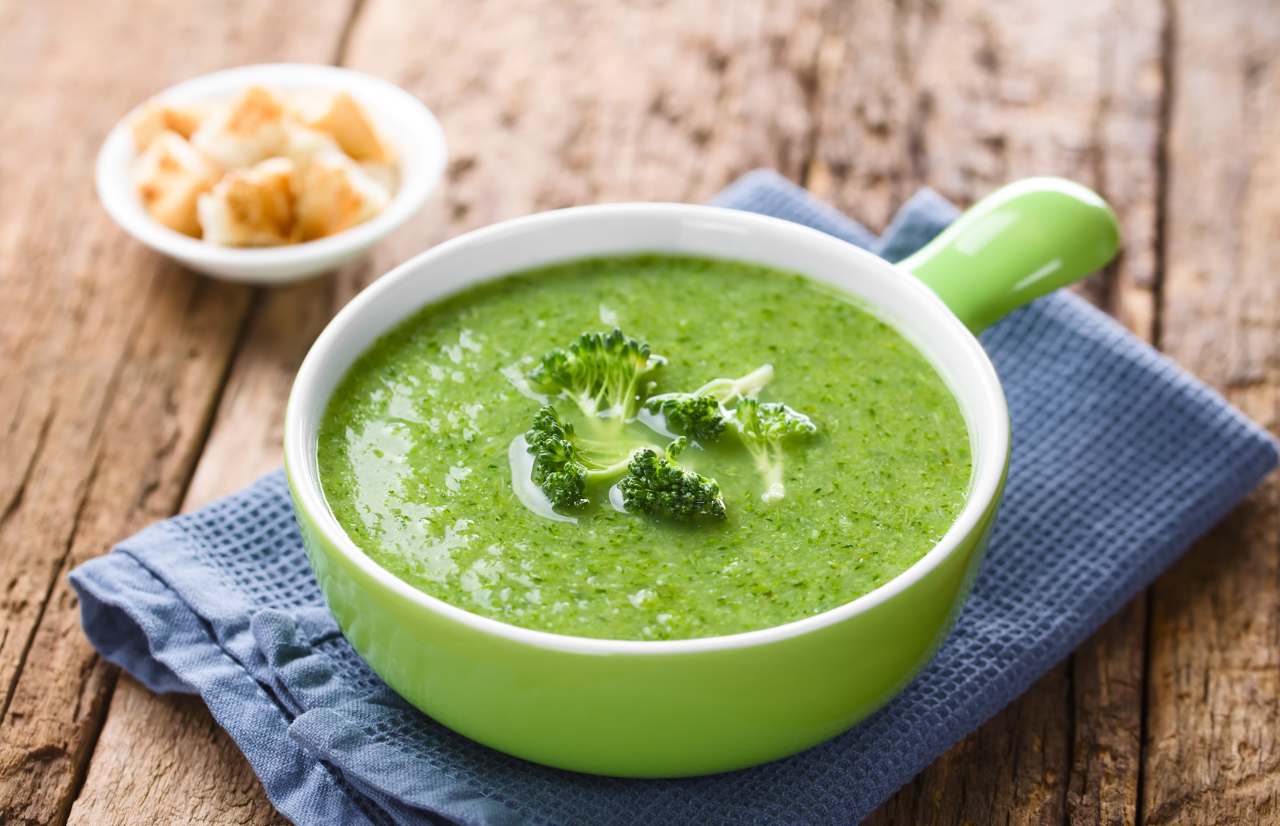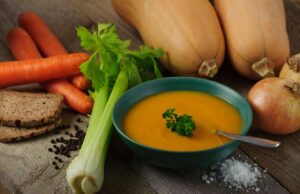Intermittent fasting has gained significant attention in recent years due to its potential health benefits. Fasting soups are an interesting way to break your fast. This article will delve into the world of fasting soups, highlighting their advantages, preparation methods, and how they contribute to a successful fasting journey.
Fasting Soups: A Healthy Way to Break Your Fast
Fasting has been practiced for centuries, not only for religious and spiritual reasons but also for its potential health benefits. From weight loss to improved metabolic health, fasting offers a range of advantages. One emerging trend within the fasting realm is the utilization of fasting soup. These soups are designed to provide essential nutrients while minimizing calorie intake, making fasting both nourishing and sustainable.
Fasting Soup: A Deeper Dive
Fasting soups are carefully crafted dishes that are low in calories, yet rich in nutrients. These soups often incorporate a variety of vegetables, lean proteins, and flavorful herbs and spices. They offer a unique way to keep your body nourished during fasting periods without hindering the benefits of fasting itself.
The Role of Fasting Soup in Intermittent Fasting
Fasting soups complement the principles of intermittent fasting by offering a way to maintain nutritional intake without disrupting the fasting state. The key lies in their nutrient composition, which supports your body’s functions while minimizing the insulin response that could break your fast.
Benefits of Fasting Soup
Fasting soups provide plenty of benefits, making them an attractive option for those pursuing a fasting lifestyle.
1. Sustained Energy Levels
Fasting soups are designed to provide sustained energy throughout your fasting window. Their balanced nutrient profile ensures that your body receives the necessary fuel to function optimally.
2. Enhanced Hydration
Many fasting soups have a high water content, aiding in hydration during fasting periods. Proper hydration is essential for overall well-being and supports various bodily functions.
3. Nutrient-Rich Composition
These soups are packed with vitamins, minerals, and antioxidants, promoting health and well-being even during periods of restricted eating.
4. Improved Digestion
Fasting soups are often easy on the digestive system, making them gentle options for breaking a fast. The warm, liquid nature of soups can soothe the digestive tract after periods of fasting.
5. Culinary Enjoyment
Fasting soups are not just nourishing but also delicious. They can be customized with various ingredients and seasonings, ensuring a satisfying culinary experience.
Crafting Your Own Fasting Soup
Preparing fasting soup is a creative and fulfilling process. Here’s how you can create your own nourishing bowl:
Select a Variety of Vegetables
Start by choosing an assortment of fresh vegetables. Choose nutrient-dense options like leafy greens, bell peppers, carrots, and zucchini.
Add Lean Protein
Incorporate a lean protein source to support muscle maintenance and satiety. This could be tofu, lean chicken, or beans.
Choose Flavorful Herbs and Spices
Enhance the taste of your soup with a blend of herbs and spices. Consider adding turmeric for its anti-inflammatory properties or rosemary for its aromatic flavor.
Mindful Broth Selection
The base of your fasting soup is crucial. Opt for a clear vegetable or bone broth to keep the calorie count low while infusing the soup with flavor.
Cooking Process
Combine your selected ingredients and allow them to simmer until they are tender. Be mindful not to overcook to preserve the nutritional value.
Incorporating Fasting Soup into Your Routine
Adding fasting soup to your intermittent fasting routine is straightforward. Here’s a simple way to get started:
- Choose Your Fasting Protocol: Determine your preferred intermittent fasting schedule. Popular options include the 16/8 method or the 5:2 approach.
- Select Fasting Days: On fasting days, plan to consume fasting soup during your eating window. These soups will keep you nourished without compromising your fast.
- Enjoy Balanced Meals: Incorporate fasting soup alongside other balanced meals to ensure you’re meeting your nutritional needs.
- Stay Hydrated: Along with fasting soups, prioritize hydration by drinking water, herbal teas, and other non-caloric beverages.
FAQs about Fasting Soups
Can I customize fasting soups based on my dietary preferences?
Absolutely! Fasting soup can be tailored to suit various dietary needs and preferences. You can choose ingredients that align with your dietary restrictions or flavor preferences.
Will fasting soup break my fast?
Fasting soups are designed to be low in calories and nutrients that trigger an insulin response. They are unlikely to break your fast if you prepare mindfully.
Can I consume fasting soups outside of fasting periods?
Certainly! Fasting soups are nutrient-rich and can be enjoyed even on non-fasting days as part of a balanced diet.
Are store-bought fasting soups as effective as homemade ones?
While store-bought options can be convenient, homemade fasting soups allow you to have complete control over the ingredients and nutrient content.
Can fasting soups help with weight loss?
Yes, fasting soups can contribute to weight loss by providing a low-calorie yet satisfying option for fasting days.
Are there any risks associated with fasting soup consumption?
For most people, fasting soups pose minimal risks. However, it’s always advisable to consult a healthcare professional before making significant dietary changes.
Conclusion: Fasting Soup
Fasting soups offer a delightful way to enhance your intermittent fasting experience. By providing essential nutrients, promoting hydration, and supporting your overall well-being, these soups make fasting both achievable and enjoyable. As you embark on your fasting journey, consider incorporating fasting soups into your routine to optimize your health and make your fasting days more fulfilling.
1. Creamy Broccoli and Spinach Fasting Soup
Ingredients:
- 2 cups broccoli florets
- 1 cup fresh spinach leaves
- 1 small onion, chopped
- 2 cloves garlic, minced
- 4 cups vegetable broth
- 1 cup unsweetened almond milk
- 1 tablespoon olive oil
- Salt and pepper to taste
- Optional: Nutritional yeast for added flavor
Instructions:
- Heat olive oil in a pot over medium heat. Add chopped onion and minced garlic. Sauté until onions are translucent.
- Add broccoli florets to the pot and sauté for a few minutes until slightly tender.
- Pour in the vegetable broth and bring it to a boil. Reduce the heat to a simmer and let the soup cook for about 10–15 minutes until the broccoli is fully cooked.
- Add fresh spinach leaves to the pot and let them wilt in the hot soup.
- Use an immersion blender to carefully blend the soup until smooth and creamy.
- Stir in unsweetened almond milk to achieve the desired consistency.
- Season the soup with salt and pepper. If desired, add nutritional yeast for extra flavor and a cheesy touch.
- Serve the creamy broccoli and spinach fasting soup hot, garnished with a sprinkle of nutritional yeast or fresh herbs.
2. Lentil and Vegetable Fasting Stew
Ingredients:
- 1 cup dried green or brown lentils, rinsed and drained
- 1 carrot, peeled and diced
- 1 celery stalk, diced
- 1 small zucchini, diced
- 1 small sweet potato, peeled and diced
- 1 can (14 oz) diced tomatoes
- 4 cups vegetable broth
- 1 teaspoon ground cumin
- 1 teaspoon paprika
- 1/2 teaspoon turmeric
- Salt and pepper to taste
- Fresh parsley for garnish
Instructions:
- In a large pot, combine rinsed lentils, diced carrots, celery, zucchini, and sweet potatoes.
- Add canned diced tomatoes, vegetable broth, ground cumin, paprika, and turmeric to the pot.
- Bring the mixture to a boil, then reduce the heat to a simmer. Cover the pot and let the stew cook for about 20–25 minutes until the lentils and vegetables are tender.
- Season the stew with salt and pepper to taste.
- Serve the lentil and vegetable fasting stew hot, garnished with fresh parsley for a burst of color and flavor.
3. Thai-Inspired Coconut Curry Fasting Soup
Ingredients:
- 1 tablespoon coconut oil
- 1 small onion, chopped
- 2 cloves garlic, minced
- 1 tablespoon fresh ginger, grated
- 1 tablespoon red curry paste
- 1 can (14 oz) coconut milk
- 3 cups vegetable broth
- 1 cup chopped mixed vegetables (bell peppers, snow peas, and carrots)
- 1 cup tofu, cubed
- 2 tablespoons soy sauce
- Juice of 1 lime
- Fresh cilantro for garnish
Instructions:
- In a pot, heat coconut oil over medium heat. Add chopped onion, minced garlic, and grated ginger. Sauté until fragrant.
- Stir in the red curry paste and cook for a minute to release its flavors.
- Pour in the coconut milk and vegetable broth. Bring to a gentle simmer.
- Add chopped mixed vegetables and cubed tofu to the pot. Let the soup simmer for about 10–15 minutes until the vegetables are tender.
- Season the soup with soy sauce and lime juice for a tangy kick.
- Serve the Thai-inspired coconut curry fasting soup hot, garnished with fresh cilantro leaves for a burst of freshness.
Enjoy these flavorful and nourishing fasting soup recipes during your fasting periods!



